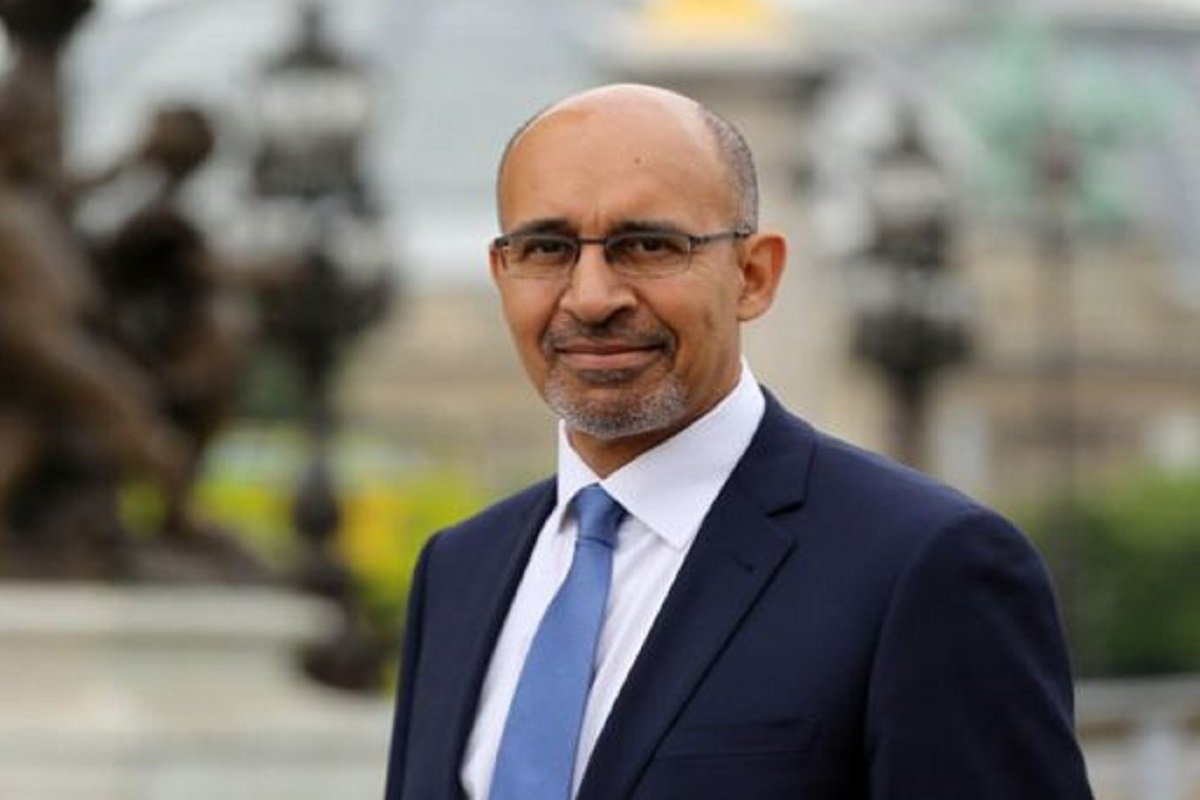Organization for Security and Co-operation in Europe (OSCE) Representative on Freedom of the Media Harlem Désir on Monday called on Turkey to release Cumhuriyet journalists.
Seven Cumhuriyet journalists were released during the first hearing in July by an İstanbul court, which continued the pretrial detention of five others. An İstanbul court on Monday evening ruled for continuation of pretrial detention for five Cumhuriyet daily journalists.
Désir asked Turkey on his Twitter account to release journalists, who, he said are imprisoned without any concrete evidence. “Keeping @Cumhuriyetgzt journalists 2 more weeks in prison on baseless accusations is unacceptable. I call on Turkey to urgently release them,” wrote Désir.
The charges brought against 17 Cumhuriyet employees in an April indictment accuse them of aiding the Kurdistan Workers’ Party (PKK), the Revolutionary People’s Liberation Party/Front (DHKP/C) and the Gülen movement, which is accused by Turkish authorities of being behind a failed coup last year.
The court in July released Güray Öz, Musa Kart, Bülent Utku, Hakan Kara, Önder Çelik, Turhan Günay and Mustafa Kemal Güngör and continued the pretrial detention of Akın Atalay, Murat Sabuncu, Kadri Gürsel, Ahmet Şık and Emre İper. Arrest warrants for Cumhuriyet’s former-editor-in-chief Can Dündar and US-based journalist İlhan Tanır are still outstanding.
The suspects were arrested by the İstanbul 9th Penal Court of Peace on Nov. 5, 2016. Atalay was detained at İstanbul Atatürk Airport upon his return from Germany and subsequently arrested on Nov. 12, 2016. Cumhuriyet reporter Şık was also detained on Dec. 22 and arrested on Dec. 30, 2016 on charges of disseminating terrorist propaganda.
Désir has also given an interview to Monday Talk series of Vocal Europe online news outlet in Brussels on Monday and said that “It is very important to continue raising international attention to these (journalists) cases. At the same time, as you say, many other issues require attention as well, including the freedom to report about the Kurdish situation, or about the Gülen Movement, and the situation of media outlets that do so.”
Emphasizing that the pressure faced by journalists, but also by anyone expressing critical views of those in power or of any issues of sensitive nature, has not started with last year’s coup attempt, Désir stated that “Media freedom and freedom of expression in Turkey have been significantly weakened for long years, even decades; it is enough to look at the list of issues raised by my Office over the last decade in order to see that a fundamental reform of laws governing free expression and media freedom is overdue, and so is a shift in the approach by the Turkish authorities towards the role of pluralistic debates and unimpeded access to public information.”
“The ongoing criminal trial against journalists and board members of the daily Cumhuriyet, or the imprisonment of numerous international journalists trying to report on various Turkish issues, has attracted more public attention to the situation of the press in the country. It is very important to continue raising international attention to these cases. At the same time, as you say, many other issues require attention as well, including the freedom to report about the Kurdish situation, or about the Gulen Movement, and the situation of media outlets that do so,” added he.
Désir has continued to assess the dire situation in Turkey from the aspects of freedom of speech and expression, he said that it is the very fundament of any democracy. “The essence of free expression is that it must be extended to views we may disagree with, even to views that offend, shock or disturb the State or any sector of the population, as the European Court of Human Rights rightly emphasized already four decades ago. This is the only way to ensure that pluralistic debates, essential in any democracy, remain free,” told Désir to Vocal Europe.
“Therefore, the attitude by the authorities towards pluralistic and free debate gives reason for major concern, especially after the coup attempt since when the pressure on media outlets and individual journalists has become nothing short of critical,” said Désir and added that “I have addressed the situation for media freedom in Turkey on numerous occasions and repeatedly called on the authorities to drop charges and release all journalists in prison and embark upon a series of fundamental legislative reforms aimed to bring the laws governing media freedom and freedom of expression in line with international standards. I have stated that my Office stands ready to assist the government with advice on possible reforms.”
Turkey is the biggest jailer of journalists in the world. The most recent figures documented by the Stockholm Center for Freedom (SCF) has showed that 283 journalists and media workers are now in jails as of August 18, 2017, most in pre-trial detention languishing in notorious Turkish prisons without even a conviction. Of those in Turkish prisons, 258 are arrested pending trial, only 25 journalists remain convicted and serving time in Turkish prisons. An outstanding detention warrants remain for 135 journalists who live in exile or remain at large in Turkey.
Detaining tens of thousands of people over alleged links to the movement, the government also closed down more than 180 media outlets after the controversial coup attempt. Turkey’s Contemporary Journalists’ Association (ÇGD) recently announced that more than 900 press cards were cancelled. (SCF with turkishminute.com)
















